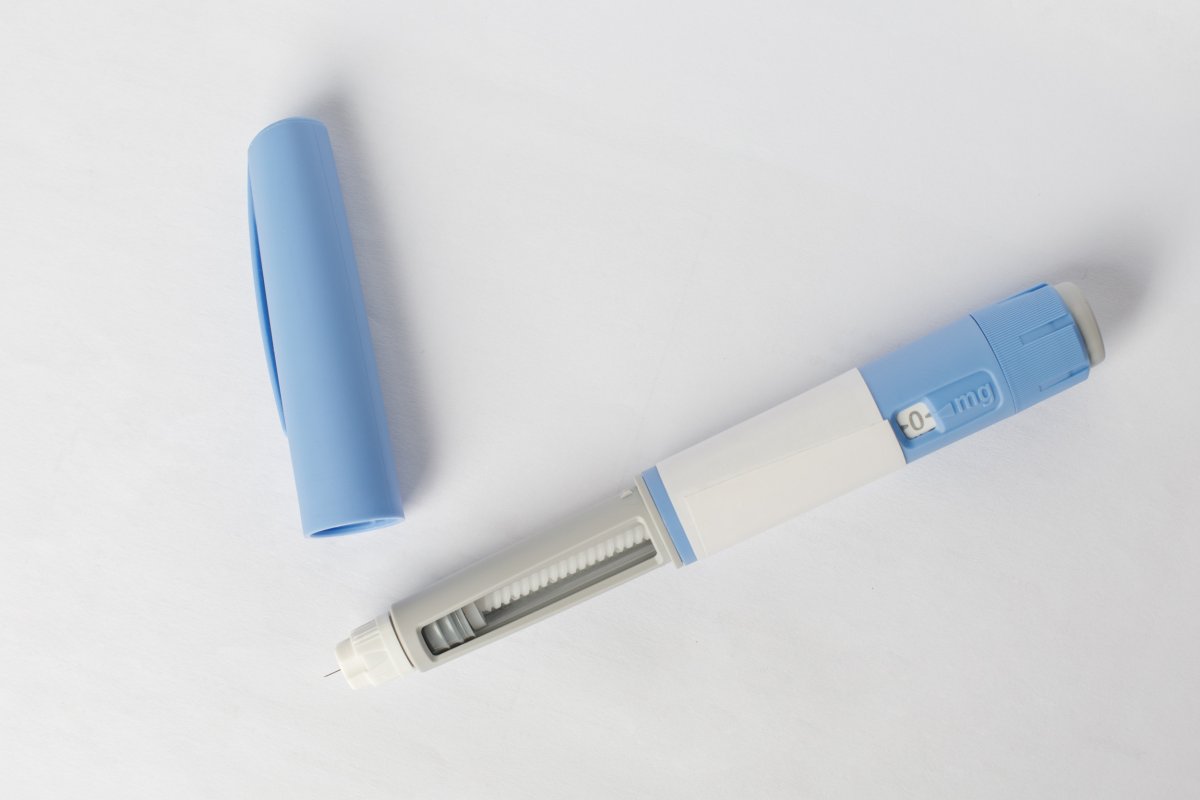
The drug semaglutide—licensed for diabetes under Ozempic and weight loss under Wegovy—could help to reduce cocaine addiction.
Scientists from the University of Gothenburg in Sweden and the University of Pennsylvania have discovered it significantly reduces cocaine-seeking behavior in rats.
While more research is needed to confirm their findings in humans, their new study suggests semaglutide is a candidate to be developed as a treatment for cocaine dependency, according to the team.
Currently, there is no effective pharmacological treatment for cocaine dependency.

DedMityay/Getty Images
Semaglutide belongs to a class of drugs called GLP-1 receptor agonists (GLP-1RAs), which, having revolutionized treatment for obesity, are now showing promise for other conditions and health problems.
“While previous studies have shown that GLP-1RAs like Ex4/exenatide reduce cocaine-related responses, the effect in humans using cocaine was limited, potentially due to low dosing and treatment timing,” study author and pharmacology professor Elisabet Jerlhag of Gothenburg told Newsweek.
This, she explained, suggests GLP-1RAs with greater potency and/or longer duration of action might be more beneficial as a treatment for cocaine use disorder. Semaglutide, for example, is long-acting with higher potency and affinity than others in its class.
“Semaglutide has demonstrated superior efficacy in treating type 2 diabetes and obesity, producing greater weight loss and glucose reduction than other GLP-1RAs”, Jerlhag said.
“Semaglutide’s superiority is further supported by studies on alcohol and alcohol use disorder (AUD). Specifically, it profoundly reduces alcohol intake in animals and patients with AUD, whereas Ex4/exenatide produces only minor effects in rats and shows no effect in humans with AUD.
“However, it remains to be explored whether semaglutide’s beneficial effects extend to more complex cocaine-related behaviors, such as voluntary cocaine taking, the motivation to consume cocaine and reinstatement of cocaine seeking, which is the aim of the present study.”

Artmim/Getty Images
In the study, the researchers gave male rats access to directly-injected cocaine, which they could dispense by pressing a lever in a cage. Then an experimental group of 10 of these animals were treated with semaglutide before being given access to the cocaine dispenser.
They found that in comparison to the control animals, self-administration of cocaine dropped by 26 percent in the animals that had been given semaglutide.
Jerlhag said that the outcomes with cocaine seem to reflect previous findings on alcohol use. “This is the first trial showing semaglutide’s potential as a drug for cocaine dependence,” she added.
Explaining further whether any negatives could arise from treating drug dependency with another drug, Jerlhag said, “Semaglutide is not an addictive drug, it’s a medication. So it’s not the same as treating opioids with methadone or similar.”
Importantly, the team also found that after a period of abstinence, there was a 62 percent drop in cocaine seeking in the animals that had taken semaglutide and their motivation (reflected in how much work they undertook to attain the drug) lowered by 52 percent.
Jerlhag said they observed that semaglutide reduced the effects of cocaine after the first injection, though the long-term effects have not yet been studied. Using low doses, they also didn’t see any side effects in the study setting.
“This is animal work, so at the moment, we can’t say that we have anywhere near a viable treatment for human cocaine dependency. We need a bigger study to confirm these results, and then we need to see if the findings also apply to humans,” Jerlhag said.
However, she concluded: “results are very promising, underlining the need for human studies, especially since there are no existing pharmacological treatments for cocaine dependency.”
Do you have a tip on a health story that Newsweek should be covering? Do you have a question about GLP-1s? Let us know via health@newsweek.com.
Reference
Aranäs, C., Caffrey, A., Edvardsson, C. E., Schmidt, H. D., & Jerlhag, E. (2025). Semaglutide suppresses cocaine taking, seeking, and cocaine-evoked dopamine levels in the nucleus accumbens. European Neuropsychopharmacology, 98. https://doi.org/10.1016/j.euroneuro.2025.07.001




